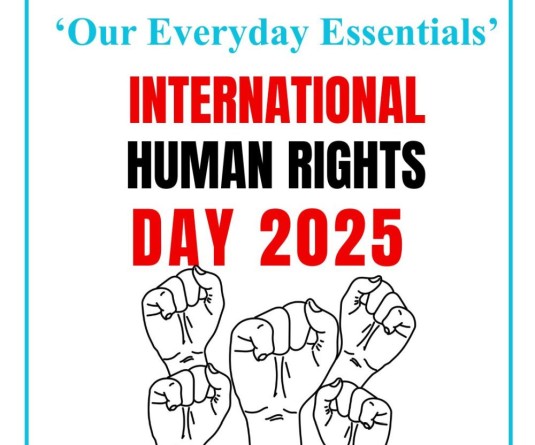
Dimapur, December 11 (MExN): While the ceasefire has provided a welcome respite, it is a reality that the Indo-Naga armed conflict with its human rights’ violation, has also strained the economy of Nagaland, seriously handicapping development, Chief Minister Neiphiu Rio has said. Rio was conferred the National Human Rights & Duties Award by the Indian Institute of Human Rights in New Delhi at the 9th World Human Rights Congress, Human Rights Day, December 10.
“The five decades of active armed conflicts between the UGs and the Indian armed forces, the State had suffered heavily in terms of violation of human rights and in terms of loss of properties and thousands of precious lives. This armed conflict had also stressed out the economy of the State, seriously handicapping the developmental efforts of the Government” Rio told the Human Rights Congress. However, he added that there has been a ceasefire since 1997, which “has been holding good continuously for the last 10 years.”
Rio reiterated that rights are never absolute and rather, they are accompanied by duties or responsibilities, without which, rights can never be enjoyed in their true sense. Rights without a sense of responsibility and duty can only be anarchy, Rio reminded. “In such a situation, Democracy often turns into Mobocracy. Therefore, if we are to safeguard peace and order in the society, it is necessary that people are made to be equally aware of their duties, as much as they are aware of their rights” he said.
The chief minister exemplified the virtue: “During my recent visit to Istanbul, the capital of Turkey, I was informed that Turkey and some other European countries (that) recently broke away from Russia, had applied for membership of the European Union, and to enjoy the facilities of Euro. But the European Union did not grant them admission, until they improve to satisfactory level some of the critical development indicating, such as per capita income, crime rate, corruption and integrity level etc. I cite this as an example where duties come first before certain rights can be enjoyed.”
Within this context, Rio informed the congress of the suffering Nagas and their state. Elaborating the history of the Naga people, he said that prior to the advancement of the British in the middle of the 19th Century, the Nagas were known as ‘head hunters’, for their practice of taking the head of the vanquished enemy as a trophy. After their subjection by the British in the later part of the 19th Century, the Nagas embraced Christianity, and head-hunting became a thing of the past. “However, unfortunately for the Nagas, the British had kept the Nagas under different administrative set ups, by creating artificial geographical boundaries between them. Now, approximately 6 lakh Nagas, are in Myanmar, occupying about 75,000 sq km of territory, while more than 2 million Nagas are in India.
Even those who are in India are further divided in the four States of Nagaland, Manipur, Arunachal Pradesh and Assam” Rio said.
He told the Human Rights’ Congress of the now-increasing desire of the Nagas to remove these artificial administrative boundaries, and live together under one administrative dispensation. “In Nagaland, the State Assembly, the Naga Hoho, various NGOs, and civil societies have, on several occasions, expressed in unequivocal terms this desire for integration through several organizations and platforms. Although the (British) had divided us under different administrative units for their administrative convenience, nevertheless, they had recognized the uniqueness of the Nagas, their culture and history, and dealt with them as one ethnic group, under the generic name of ‘Nagas’” the chief Minister explained. He also enlightened the assembly the Inner Line regulation more popularly known as the ILP system, to safeguard and protect the Nagas’ culture and identity. However, “The (successive) Indian Government not only continued with the ILP, but introduced further protection measures, such as Article 371 (A) of the Constitution and RAP/PAP for the protection of the Naga culture and way of life.”
Nonetheless, after five decades of armed conflict, the ceasefire and the resultant peace process has given the people a welcome breather, enabling the government and the people to start moving away from the gun culture to work culture, he said. Rio further explained that the Nagaland Government came out with a new policy slogan “Peace for development and development for peace”, to drive home the point that peace and developments are inextricably linked, and inseparable. Through this, village communities, the NGOs, the civil society and the churches are now being emboldened to come out openly against all forms of killing, and to raise their voice in support of peace, he conveyed.
Rio explained that “the whole state is now agog with hope for a permanent peace” for, the Nagas desire an honorable settlement, acceptable to the people. “And I am happy to be a part of this positive process of transition” he acknowledged.



.jpg)


